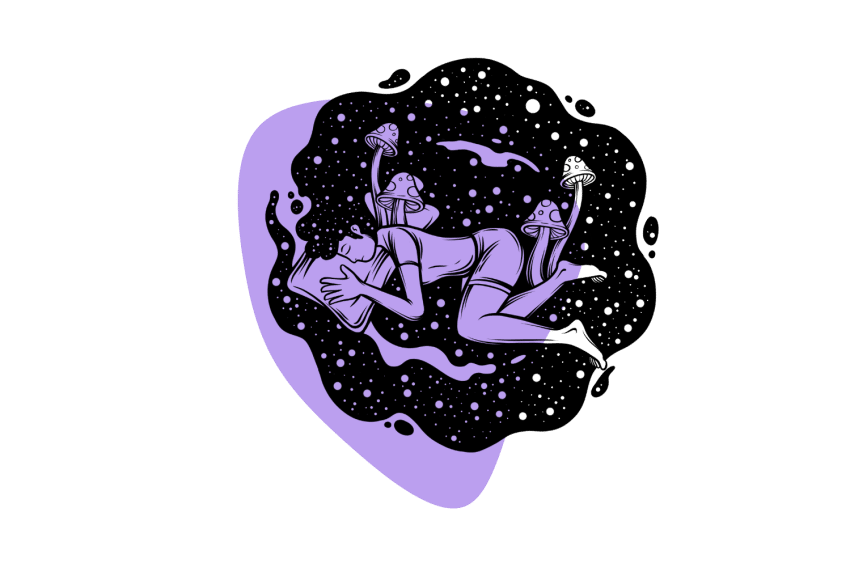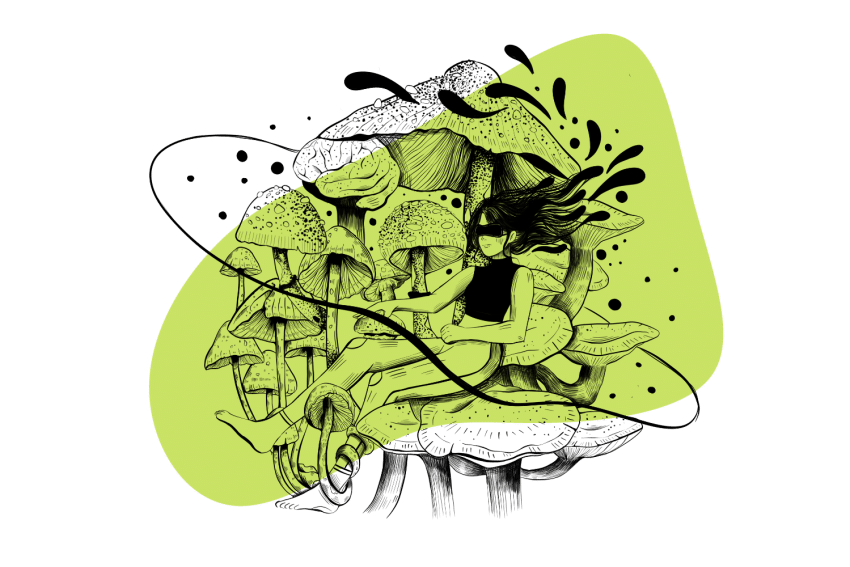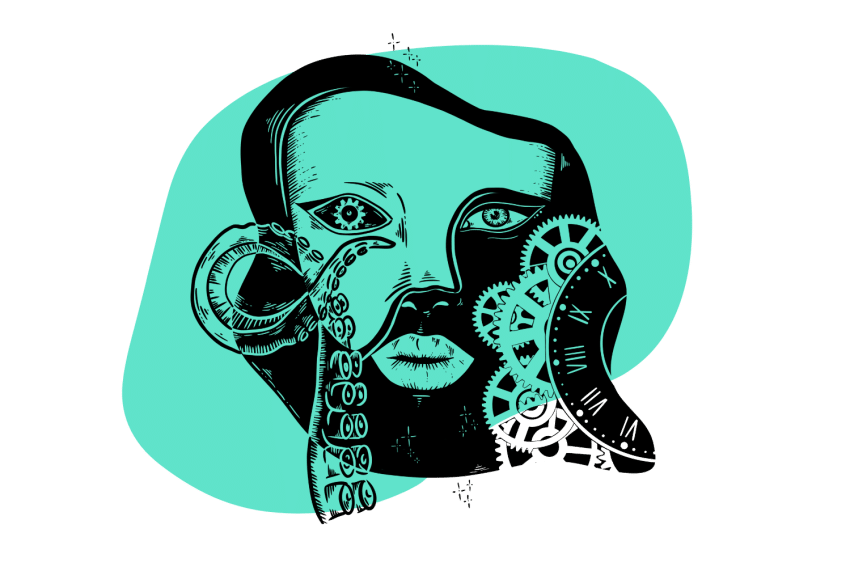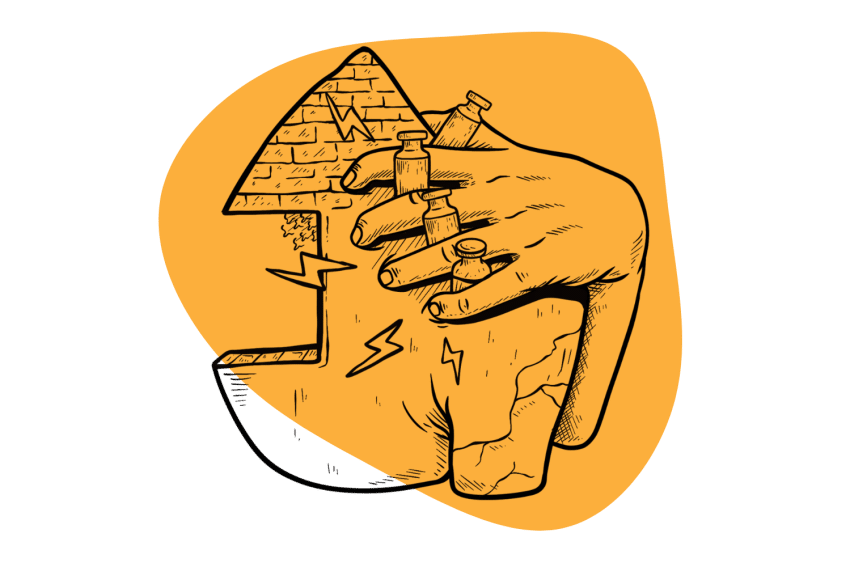How to Become a Psychedelic Integration Coach
With the right training and experience, psychedelic coaches can help individuals navigate the intense experience of psychedelics and make sense of the insights and realizations gained during their journey. Here’s how to get started.
Becoming a psychedelic integration coach is a great access point to assisting people in their psychedelic process. Coaching is accessible because it doesn’t technically require official certification. But while anyone can legally call themselves a coach, coaching isn’t just about the title.
Successfully helping people through a psychedelic process can be a complex undertaking. Becoming an effective coach with happy, satisfied clients takes a significant commitment to study and practice — not to mention a big deal of empathy and ethics.
With that said, here are six key steps you can take to become a psychedelic integration coach:
- Acquire knowledge and understanding of psychedelics — read books, attend workshops, and participate in personal or group sessions.
- Get trained in a related field — Psychology, counseling, or therapy are all overlapping fields that serve as jumping-off points into being a psychedelic coach.
- Consider certification — Some organizations offer certificate programs for psychedelic integration coaches, such as MAPS or CIIS.
- Develop your skills — Improve your ability to listen, practice empathy, and safely support people through the psychedelic experience and its aftermath.
- Establish your practice — Once you’re ready, start offering your services through your own practice or by joining an organization.
- Find your niche — By focusing on a specific niche, you can tailor your efforts to meet the unique needs of your target audience.
Read on to find out what exactly psychedelic integration coaching is, the difference between psychedelic coaching and therapy, why people seek it out, and what training opportunities are available.
What is a Psychedelic Integration Coach?
Psychedelics can generate life-altering insights, creative ideas, and spiritual experiences. The integration process following a psychedelic session can feel overwhelming or unclear. In one study, 30% of participants reported having difficulty with integration [1].
Coaches help provide direction and support so that psychedelic experiences can be relevant to a person’s life. They facilitate the integration of these experiences and any insights gained into daily life.
Gabor Mate, a trauma and addiction expert who advocates for psychedelic therapy, defines integration as “the process of becoming whole.”
From another angle, a recent study [2] described psychedelic integration as follows:
Integration is a process in which a person revisits and actively engages in making sense of, working through, translating, and processing the content of their psychedelic experience.”
These definitions, along with dozens of others, are very broad. There are many ways to look at an individual’s integration process, and there will always be many paths to the goal.
What Psychedelic Integration Isn’t: Coaching vs. Therapy
There isn’t a standard definition of coaching. Much less so for psychedelic integration coaches.
However, the International Coaching Federation (ICF) defines coaching as:
Partnering with clients in a thought-provoking and creative process that inspires them to maximize their personal and professional potential.”
The definition is broad because coaching spans various niches, processes, and outcomes. In simple terms, coaching is helping the client with whatever they want to achieve.
What Coaching Isn’t:
- Coaching isn’t therapy. Coaches don’t diagnose mental health conditions or treat them.
- Coaching is also not consulting. Knowledge about psychedelics comes in handy, but coaching is about empowering individuals, not exclusively telling them what to do.
- Coaching isn’t mentorship. Being an experienced psychonaut can build trust with your clients, and this knowledge will have its place. But a coaching relationship focuses on the coachee’s needs and their ability to find their own answers.
It’s often said that therapy focuses on the past and coaching on the future.
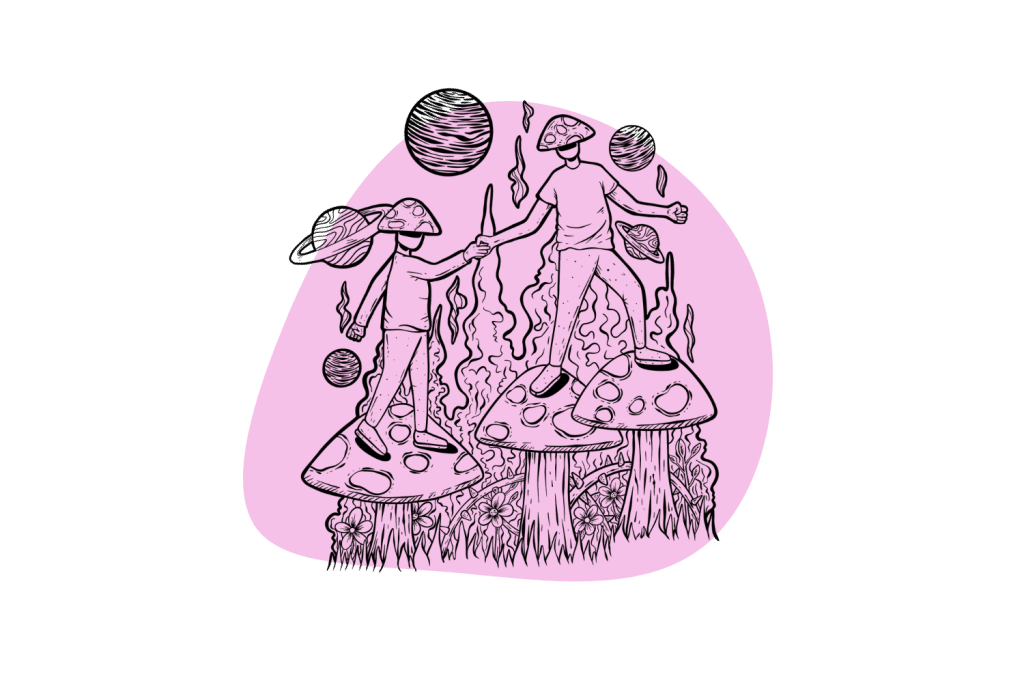
These two overlap — conversations about emotions, behaviors, beliefs, etc. However, coaches aren’t focused on healing past traumas. Instead, coaching assumes a level of wellness and is typically goal-oriented, forward-thinking, and action-oriented.
Coaches must learn to recognize their limits and be responsible for directing clients to other healthcare professionals when needed.
Why Do People Need Psychedelic Integration Coaching?
People seeking an integration coach usually seek support to navigate a future psychedelic experience or make sense of a past one. Some coaches offer services to bring users through a psychedelic session directly.
Most psychedelic services fall into one of three categories (or a combination of them):
- Preparation for an upcoming psychedelic experience — Learning about set and setting, creating intentions, exploring desired outcomes or fears, choosing a substance, etc.
- Guidance through a psychedelic experience — Acts as a “professional trip sitter” to ensure the user remains safe.
- Integration after a psychedelic experience — Make meaning from their experiences and turn insights into tangible actions, habits, or changes.
Researchers and shamans only work with psychedelics in specific contexts, and coaches also need a solid understanding of set, setting, harm reduction, preparation, integration, and personal psychedelic experience is a minimum for being a psychedelic integration coach [3].

Safety is the number one priority, and empathy for the experience is usually stronger among people who have used psychedelics.
An effective coach will give people a non-judgemental space to explore desires and challenges. Coaches are also trained to assist with progress toward desired outcomes triggered by psychedelics.
How to Become a Psychedelic Integration Coach: Step-By-Step
In the world of psychedelic coaching and therapy, we are in the early days. There is no single path to guiding people through psychedelic experiences and integration. Discovering how you wish to work with psychedelics involves an exploration. Below represents one way we know but is by no means the only one.
1. Acquire Knowledge & Understanding of Psychedelics
The only source of knowledge is experience.”
— Albert Einstein
Take Psychedelics
Having psychedelic experience is fundamental to learning how to work them. Shamans traditionally learn through experience, and we can too!
Having experience with different substances, doses, settings, and facilitators will build trust with your clients. It also allows you to understand and relate to their experiences.
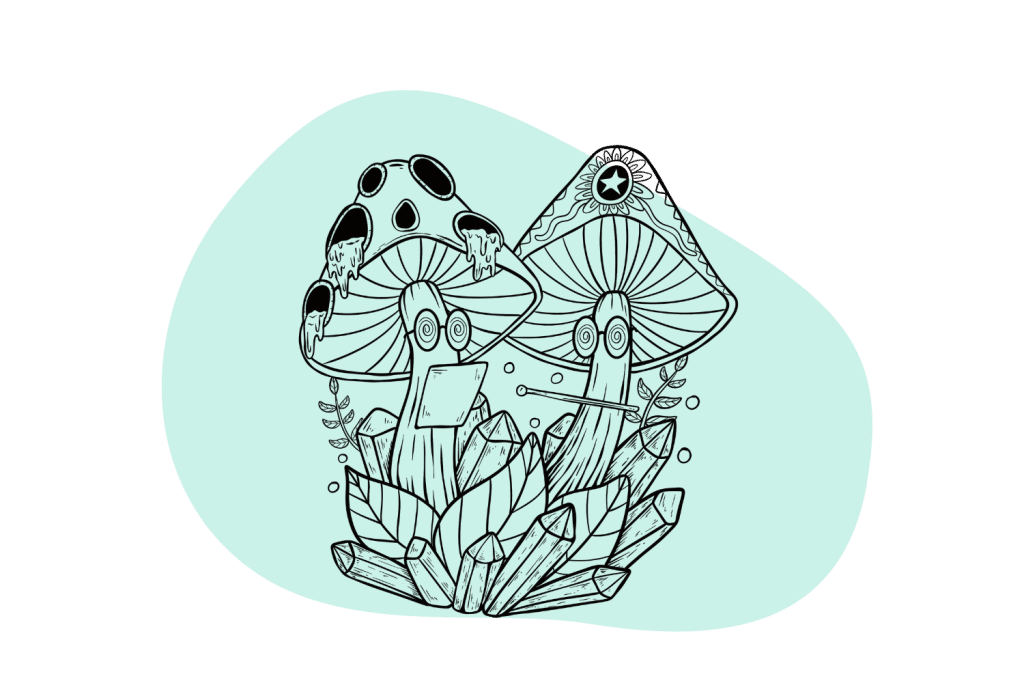
Read Books
Dozens have come out since the 1960s addressing psychedelics and how to use them.
Books about coaching, psychology, therapy, and personal development can all come in handy too.
Some great books to start learning about psychedelics include:
- The Psychedelic Explorer’s Guide (James Fadiman) — one of the best “intros to psychedelics” you’ll find.
- The Psychedelic Handbook (Rick Strassman) — an expert guide on the preparation and practice of psychedelic medicine from both a western medical and spiritual perspective.
- Psychedelic Psychotherapy (R. Coleman) — a definitive guide on the details of healing depression, addiction, and trauma using conventional psychedelics.
- Love Drugs (Brian Earp & Julian Savulescu) — specific to the use of psychedelics for couple’s therapy and relationships
- In The Realm of Hungry Ghosts (Gabor Maté) — the ultimate book on addiction and substance abuse.
Related: Psychedelic Book Club
Attend Workshops & Talks
There are dozens of psychedelic organizations dedicated to harm reduction, preparation, and integration.
Explore the psychedelic space, sign up for newsletters and webinars, download ebooks, or attend a psychedelic conference.
Some organizations like Zendo Project or ICEERS provide valuable (free) harm reduction resources.
Read Tripsitter.com
We created this website to educate you about the safe and responsible use of psychedelics. We go deep into many different psychedelic substances, explain how they work, how to use them safely, what the research says, and where to look for more information.
Check out our blog to browse our posts, or use the menu at the top to dial in on a specific topic.
Explore our content and subscribe to the newsletter to learn with us.
2. Get Trained in a Related Field
Integration coaches come from diverse backgrounds, and everyone’s unique skills bring a special flavor to their coaching.
Many other forms of training can augment coaching and further define your niche.
Coaching
Many high-quality life and business coaching programs are available at various lengths and costs. Effective coaching will be transferable to psychedelic integration.
Coaching programs are great places to develop practical coaching skills, with many allowing certification with the International Coaching Federation (ICF).
Counseling
A counselor’s skill sets pair well with coaching. Often with a tighter focus and shorter-term relationship than therapy, counseling teaches skills to deepen a process with a client, along with specializations like addiction or family dynamics.
Counseling requires a master’s degree and, typically, a license.
Therapy
Becoming a therapist is also a powerful credential to have alongside coaching training. Therapy can explore the depths of topics like someone’s childhood or trauma, while coaching techniques can help people take action when they’re ready.
Getting psychedelic therapy credentials to guide therapeutic psychedelic experiences is also possible.
Therapists also have master’s degrees and licensing requirements.
Health & Wellness
There are an endless amount of complementary practices to coaching.
Knowledge in nutrition, fitness, meditation, yoga, breathwork, somatic awareness, energy work, sound healing, and any modality you are passionate about can be woven into a coaching practice.
There are no set rules about how you coach people to their success, so get trained up in whatever gets you excited!
Used skillfully, many health and wellness techniques create extra impact for clients.
3. Consider Certification
There are coaching programs directed at training psychedelic integration coaches.
These programs are not typically recognized by the ICF, and most are pretty new.
Because standards of psychedelic care do not yet exist, creating a universal certification is difficult. However, a growing number of programs offer access to experienced practitioners who share their knowledge of psychedelic and plant medicines in coaching and therapeutic contexts.
Coaching or General Access Programs
- Be True to You — A coach training program focused on recovery from addiction and integration. One of the more established psychedelic integration-focused coaching programs with over 100 hours of training and open to anyone.
- Synthesis Institute — In partnership with retreat centers in the Netherlands, the Psychedelic Practioner Core Training is 13 months, mostly online, and focuses on, but is not limited to, licensed mental health professionals.
- Psychedelics Today — This organization has provided education in the psychedelic space for some time. Their year-long, 180-hour Psychedelic Training Program “Vital” targets clinical professionals but is open to other health and wellness.
- Plant Spirit School — A six-month program created by Lorna Liana focused on psychedelic integration coaching with plant medicine, highlighting indigenous perspectives and the use of plant medicine. Applications are open to anyone.
- Tam Integration — Led by integration coach and meditation teacher Daniel Shankin, this year-long cohort focuses on mindfulness and somatic awareness.
Therapy-Focused Programs
- MAPS (Multidisciplinary Association of Psychedelic Study) — A pioneering 100-hour MDMA Therapy Training program. The program is open to licensed therapists, post-docs, post-grad interns, those in residency, or people who can demonstrate 1000 hours of providing behavioral health services.
- CIIS (The California Institute for Integral Studies) — A respected and accredited institution offering a Psychedelic Therapy Training Certificate. Hybrid attendance over eight months in Boston and San Francisco is an option, along with an online cohort for mental health clinicians, medical professionals, and clergy.
- Naropa University — A program developed in partnership with MAPS, Naropa’s Psychedelic Assisted Therapies Certificate is 200 hours and ten months long with a requirement of ten hours in non-ordinary states. The program is open to those who are or are becoming counselors, therapists, nurses, doctors, and chaplains.
- IPI (Integrative Psychiatry Institute) — In partnership with MAPS and another research non-profit, Usona Institute, to create an Online Psychedelic-Assisted Therapy Program for counselors, therapists, nurses, physicians, and chaplains. This 200-hour, year-long program includes an optional in-person ketamine retreat.
- Therapsil — Is a non-profit working towards legal, medical access to psilocybin in Canada with its Psilocybin-Assisted Training Program for counselors, therapists, and chaplains. The Canadian government has blocked trainees from using psilocybin in this 146-hour program.
4. Develop Your Skills
An official training program is a straightforward route to a comprehensive psychedelic education. Yet many of the programs are costly, restricted to licensed mental health professionals, or have limited seats.
Whether you’re already practicing or gearing up to embark on a career in psychedelic integration, you’ll need to hone a variety of skills:
These skills take time to learn, and the process is lifelong. It’s wise to begin developing these skills right away.
Active Listening
You cannot help a client if you do not understand their current situation, goals, and blockages. Listening deeply and staying present with your clients is a big part of the job! Particularly when unpacking a psychedelic trip, someone simply being present and fully listening can be very helpful.
Start practicing letting others speak more and try not to think about what to say next. Just be present with them. There are many workshops you can attend and articles to read about skills like active listening. It’s helpful to understand mindfulness and what it feels like to be present.
Understanding Body Language
Sometimes, in your coaching practice, people will have difficulty saying what is really on their minds. This could be intentional or unconscious, but part of your job as a coach is not buying people’s stories about themselves. Body language is a powerful tool for noticing what a client isn’t saying.
Simply noticing a person’s rounded shoulders, nervous hands, or looking away when answering a question can give you clues about what someone is feeling and perhaps what to ask to open them up. Former FBI agent Joe Navarro has many great books about decoding body language.
Ask Amazing Questions
Asking potent and directed questions to your clients is fundamental to coaching. Clients are not hiring you only to listen to them or be their friend. Good coaching impacts a client’s life and can mean initiating tough conversations. Developing your ability to ask questions that create awareness, deeply explore a psychedelic experience, or help a client find ways to take responsibility for a situation will make you a successful coach.
Some ways to develop this skill include using journaling prompts, getting coached, and reading books focused on coaching. The books Co-Active Coaching and The Coaching Habit are popular choices and contain many examples of questions and sample dialogues.
Empathy & Acceptance
Being able to attune to your client’s hopes, dreams, emotional state, and challenges in an empathetic way will be necessary for every coaching session. Keeping an open mind with which you can accept their struggles and goals without judgment creates safety.
By putting our judgments aside, we put the client first. Particularly with sensitive material coming on psychedelics, people need acceptance. Taking time to ask about and relate to how other people feel can be practiced in daily life; meditation practice can also help strengthen acceptance.
Self-Awareness
Self-awareness is the ability to understand and be aware of your thoughts, feelings, and behaviors — and how they might impact others.
Some of the ways you can improve your self-awareness include:
- Practice mindfulness meditation — by learning how to live in the present moment and allowing things to be “as they are,” you can become more aware of your thoughts and feelings and how they control your behaviors.
- Seek feedback from others — this may include your friends, colleagues, and past clients/patients.
- Keep a journal — use this to record your thoughts and feelings and review past notes often.
- Take breaks — taking a step back often helps you avoid getting caught up in your thoughts.
- Study philosophy — philosophy is the study of how we think and process our emotions. Read books and attend lectures.
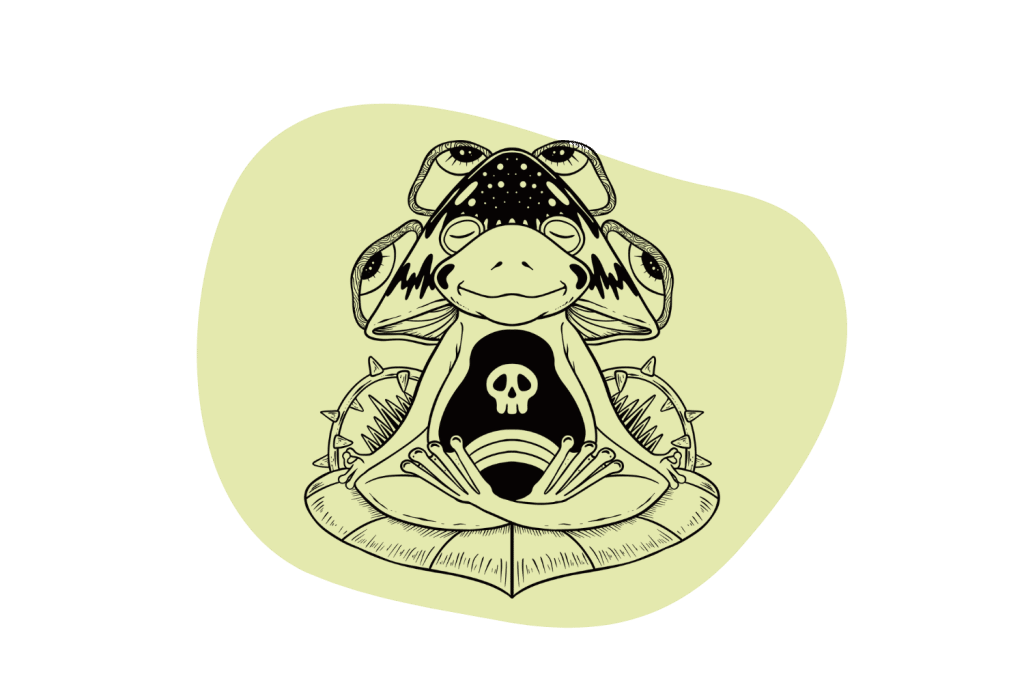
Cultural Competency
Cultural competence is the ability to understand and respect the cultural backgrounds of others. As a psychedelic practitioner, you’ll need to understand how to incorporate this understanding into your client interactions.
Some ways you can train cultural competence as a skill include:
- Learn about other cultures — watch documentaries, read books, attend workshops, and travel to other countries
- Be open-minded — be willing to change your mind and dissolve preexisting notions you have about others’ ideas or beliefs
- Reflect on your cultural background — getting in touch with your own culture will help you identify and understand your own biases and assumptions about others.
- Seek feedback — ask colleagues, friends, or other professionals with different cultural backgrounds for feedback on your ideas.
5. Establish Your Practice
Starting a coaching practice doesn’t need to be complicated. It is easy to get excited about building a website or social media following, but this can get overwhelming.
An online presence takes time to grow and isn’t required to start a practice. In fact, some successful coaches don’t have a website or social media profile at all.
It’s surprising how many people in your immediate network will be open to experiencing your coaching. You can offer sessions to friends, family, co-workers, and acquaintances too. And when you impact people’s lives for the better, they will talk about it!
An excellent book about client acquisition is The Way of the Prosperous Coach by Rich Litvin and Steven Chandler, in which they emphasize “no client was ever created outside a good conversation” and that simply connecting with people is number one.
Some things to think about when starting your practice:
- Build a professional network — start by attending conferences and conventions
- Develop a business plan — include methods of collecting payment, scheduling new sessions, and business operations
- Create a website — start with something simple like Squarespace, Wix, or Wordpress.com
- Create a portfolio — ask past clients to provide you with reviews (if possible)
- Social media accounts — decide whether you want to use your personal accounts or set up a dedicated business profile
6. Find Your Niche
When starting coaching, particularly in the beginning, it helps to develop a niche. One way to approach this is, “Who is your ideal client?” The ideal client is someone you would enjoy helping the most. This could be entrepreneurs living in Boston or yoga teachers building a social media presence. Your ideal niche will be a group with whom you feel your skills and experience can help.
Psychedelics are already a niche, but you will find practitioners who have further narrowed their practice to entrepreneurship, microdosing, plant medicine, mindfulness, and many others. It’s possible to build a coaching practice without a niche. But initially, knowing exactly who you want to advertise to or approach for your services simplifies things. You can always expand your practice down the road.
Population Specialization
Working with people you find easy to connect with is the path of least resistance. Consider what social groups you naturally gravitate to, as your ideal clients likely exist within these groups.
A coaching practice can be easy to jumpstart within your existing social network. When you start to expand the offering, knowing your strengths and who resonates with your coaching style will tell you who to reach out to next.
Examples of population specialization are a certain age range, men, women, or BIPOC networks. Other groups might share your lifestyle choices or values, like business interests or spiritual paths. You don’t need to be an expert at something to coach another person in it, but common ground makes empathy and trust come naturally.
Substance Knowledge
In the psychedelic world, it can be helpful to focus on specific substances you have experience with. In general, it’s best to focus on just one or two substances you have a lot of experience with and continue to learn about every day.
A good practitioner should have a lot of experience with the substance they’re working with by engaging in sessions with other practitioners, spending time learning about and taking the substance, and gaining a strong understanding of its unique nuances.
Health Condition Specialization
Beyond individual substance focus, it’s wise to dial in on a specific subset of health conditions. This may include topics like addiction, chronic health, terminal illness, or spiritual growth and expansion.
Perhaps you or a loved one had to deal with a specific health condition. The insights learned from healing can be invaluable to others going through something similar. Many would call challenging life experiences a gift when it comes to helping others.
It bears mentioning that making specific health recommendations is only for those with the appropriate training. Coaching is a supportive role, not a prescriptive one.
Psychedelic Integration Coach Code of Ethics
In psychedelic therapy and coaching, ethics are of great importance.
There have been many occurrences of abuse and unethical behavior in the psychedelic space. Some of these incidents involve well-intended facilitators.
Particularly if you want to act as a sitter for psychedelic journeys, a deep understanding of ethics is paramount.
Several organizations have drafted codes of ethics. There is currently no standard, but notable and respected outlines are presented by organizations such as MAPS and the Psychedelic Association of Canada.
The codes focus on facilitating journeys, but the principles are helpful for anyone wanting to work with people.
We encourage you to look at different codes of ethics and use them to produce your own personal list.
Here’s a quick overview of essential principles to get you started:
- Safety — Client safety is number one. Knowing their mental and physical health conditions is paramount, along with knowing your limits as a coach. Refer clients with psychological or physical problems beyond your qualifications to appropriate professionals.
- Consent — Communication to establish consent and boundaries. Consent can change from moment to moment, but with altered states, always establish boundaries beforehand and stick to them.
- No Sexual Contact — In journey work or within a relationship where a power dynamic exists, there is no such thing as ethical sexual contact. The psychedelic movement depends on people acting with integrity and strong boundaries around sexuality.
- Respect and Trust — The foundation of the relationship between you and your clients is trust. This includes respecting confidentiality and agreements, along with a focus on service and putting the client’s process first.
- Diversity — Develop sensitivity to power dynamics, cultural differences, and privilege. Celebrating our differences and not engaging in discrimination is essential to creating safe spaces to support all people.
Is Psychedelic Coaching Legal?
While coaching people around psychedelics is legal, psychedelics, for the most part, are scheduled substances, meaning selling them or possessing them can carry serious consequences.
It’s the coach’s responsibility to know the laws.
Some coaches will choose to act as psychedelic guides. As previously mentioned, there are no standards of care around psychedelics, and giving someone a psychedelic is a big responsibility. Any risks and liability need to be thoroughly explored and made extremely clear between the coach and coachee.
If you plan to facilitate psychedelic experiences as part of your practice, do your homework! Dose and a safe space for a client’s physical and mental health must be thoroughly understood in this context. Safety is always number one.
Being a trip sitter or psychedelic guide does not mean being a therapist. Sitters are simply present to hold space and keep people safe. There are many trip-sitting courses available, along with resources like codes of ethics as guidelines for conduct and safety.
How to Become a Psychedelic Integration Coach FAQ
1. Are There Any Professional Organizations for Psychedelic Integration Coaches?
At this time, there is no national or international organization directed at psychedelic integration coaches. The International Coaching Federation certifies coaches, but the acceptance of psychedelic medicine in their ranks is unclear. One can be a certified ICF coach who also does psychedelic integration, as ICF regulations focus on certain skills and time spent coaching.
However, there are also many other psychedelic-focused organizations coaches can get involved with, like:
- American Association of Psychedelics
- Psychedelic Medicine Association
- Psychedelic Association of Canada
2. Are Psychedelic Integration Coaches Insured?
As a professionally certified life coach, usually through the ICF, it is possible to obtain liability insurance as a life coach. However, as psychedelics are largely illegal and their effects are still poorly understood from a medical perspective, we are unaware of insurance policies specifically covering coaches assisting with psychedelic integration.
3. Where Can I Find a Psychedelic Integration Circle?
A psychedelic integration circle is usually facilitated by a coach or therapist. These groups are safe and open places to share psychedelic experiences. While integration circles are not therapy, they can be helpful places to find support and connect with other people exploring psychedelics. They also are often low-cost, free, or donation based.
To search for psychedelic integration circles near you, try using Meetup.
There is a rapidly growing amount of options available. Many circles require you to register in advance:
- Tam Integration — A weekly integration circle open to everyone and led by meditation instructor and integration coach Daniel Shankin. Specific women’s and BIPOC circles also are offered.
- Nectara — Many events are hosted each month, including psychedelic integration circles, workshops, breathwork journeys, and meditation. It also includes a directory of integration support professionals.
- Journey Space — Founded by musician East Forest this online platform provides original musical arrangements to trip to as part of a group connected through preparation and integration circles. Coaching and therapy are also available.
- Numinus — Multiple circles are held monthly and facilitated by various psychedelic professionals.
4. How Much Does Psychedelic Integration Coaching Cost?
The cost of psychedelic integration coaching varies between coaches, with a rough range from $60 – $250. The average is about $100-150. Many coaches offer packages, including preparation and integration sessions.
Psychedelic therapy generally costs a minimum of $100 an hour and includes several sessions and a journey, so the total cost can reach over a thousand dollars.
5. Where Can I Find a Psychedelic Integration Coach Job?
Within the emerging psychedelic space, it is possible to be hired as a coach. Telemedicine companies working with ketamine hire integration coaches. There are also job boards specific to psychedelics, like Psychedelic Alpha, and a monthly newsletter sent out by Psychedelic Times.
References
- Lutkajtis, A., & Evans, J. (2023). Psychedelic integration challenges: Participant experiences after a psilocybin truffle retreat in the Netherlands. Journal of Psychedelic Studies, 6(3), 211-221.
- Bathje, G. J., Majeski, E., & Kudowor, M. (2022). Psychedelic integration: An analysis of the concept and its practice. Frontiers in Psychology, 13.
- Carhart-Harris, R. L., Roseman, L., Haijen, E., Erritzoe, D., Watts, R., Branchi, I., & Kaelen, M. (2018). Psychedelics and the essential importance of context. Journal of Psychopharmacology, 32(7), 725-731.

